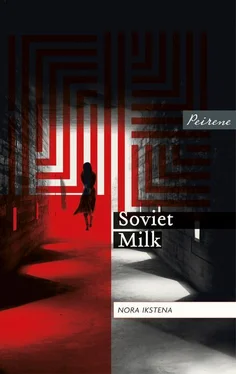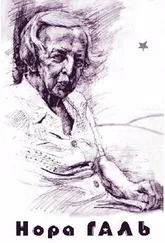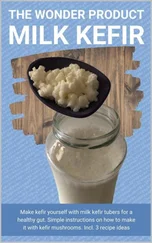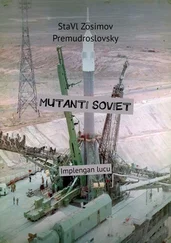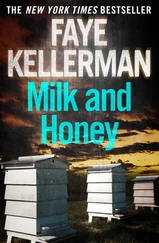My illness took some time to subside. I was allowed to go home. There, cared for by my grandmother and stepgrandfather, I gradually got back on my feet, although I was often ill again during that first year of university. The days passed monotonously. Only my mountains of books could transport me into a different life. Jesse visited now and then, with greetings and gifts from my mother.
I managed to get good marks in the spring term, although I suffered the consequences. I would read until I felt sick. Often while immersed in a book, I would suddenly feel nauseous and have to run to the toilet. Like my childhood reaction to milk, it wasn’t because I didn’t like something about The Odyssey or The Brothers Karamazov, but because the words made my head spin.
Now the first year was behind me. Once again summer was beginning and I was going to stay with my mother. We hadn’t seen each other at all during my long winter of illness and reading.
She had come to meet me at the train station. She stood by the flowerbed, strange and distant. It was like that time she had come to meet me at school and we didn’t know how to behave. We hugged. My mother’s hands were covered in gashes, which she had become used to. I tried to look at her face, which I had last seen in that nightmarish sleep, when she threw our door key down from the attic window.
We walked in silence, as usual.
Surrounded by the signs of early summer, the road led my mother and me towards a new life. It promised that everything would truly turn out well. Indeed, our road was beautiful. White and blue anemones greeted us from the edges of ditches. The sky was clear. Somewhere in the distance a cuckoo made its bubbling sounds. The birches still showed that bright, bare greenness that dazzles one’s eyes. My mother’s cigarette smoke mingled with the spring air and heralded something unknown, something fresh and appealing. It drove away the sadness of separation and comforted my aching soul.
It really was a wondrous summer. Laughing and joking around, the three of us tied the wire brushes at speed. We wanted to amass sufficient money to spend on all kinds of small things. ‘Like manna from heaven,’ Jesse exclaimed, when we returned with treasures for the soul and the flesh.
Late one evening in midsummer I talked my mother into coming for a swim in the river. There was no one on the bank, so we could swim naked. My mother undressed covertly, as if she was shy. But once in the water she said, ‘Warm as milk.’ For a while we floated there together. The moonlight threw a bright path across the water. My mother swam into it and I swam beside her. We swam until we were nearly out of strength, then turned back to the bank.
*
She left at the end of August. That autumn was particularly rainy and dank. We had to keep the wood stoves burning constantly so that our hands wouldn’t freeze as we tied the wire brushes. From the world outside Jesse brought alarming news. Everything was truly about to change. Freedom was close at hand. On those evenings she talked like a prophet.
‘Maybe the time has come to put the wire brushes behind us?’
‘Jesse, do you think there’s room to be found for freedom here?’ I answered with a counter-question.
Jesse looked at me as if I were a hopeless case and exclaimed, ‘How long are we going to sit on the fence?’
That night I couldn’t get Jesse’s words out of my head. Unable to fall asleep, visions came to me of a long road with crowds of cripples moving slowly along it. Tottering, they dragged themselves forward, driven by some tantalizing dream. Yet they were after all limping towards life. I wasn’t on that road. I didn’t see myself there. The road came to a fork – one branch led the cripples along an earthly road and the other was the milky way to heaven. There will be plenty of room there, Jesse. There will be space for freedom. Life will have healed over and our lives will be released into the wide world.
Time was moving more quickly. Sometimes I sat in my room for days on end, smoking and staring, as morning became midday, midday became evening, and evening became night. Jesse noticed that I was switching off. She decided to come to live with me. On my active days, we would eat a late breakfast, tie a batch of brushes, then prepare for lunch. Towards evening, Jesse would go to clean at the ambulatory centre. I would try to read something, but the letters slid past my eyes and nothing stuck, nothing stayed with me.
When Jesse returned, we would talk about my daughter. We were waiting for her. This second year felt harder than the first. She had to study and read so much that she had less and less time outside her course even to come and see us. Jesse spoke up to ask if I wouldn’t like to see my mother and stepfather. We could pull ourselves together, crawl out of our wire-brush den and go to the city. But I had no such desire. Sometimes I actually felt my strength draining away. Nothing hurt, I had no fever, just an odd condition of weightlessness.
Often I couldn’t sleep at night. Jesse guarded my sleeping pills like a prison officer and dispensed them as parsimoniously as communion wafers. They were my redeemer and my joy. That tiny white pill – one and a half or two – which transported me away from the cripples’ earthly road even if only for a moment.
My daughter came at Christmas. Only for a few days, but she came. She brought gifts – my mother had knitted a hat for me and mittens for Jesse. My stepfather had made a pair of candle holders with his own hands. My daughter gave Jesse and me each a crocheted angel, bought on a street corner from an old woman who also had an angelic air about her.
My daughter herself was the greatest Christmas gift for Jesse and me. She had grown more beautiful, more serious and more adult. Possibly she was in love, but she wouldn’t talk about it. Instead she talked about books and theories and begged to borrow Moby-Dick from me, as well as the book about Winston, which Jesse had hidden along with the sleeping pills.
She told me about my mother, who was spoiling her, and about my stepfather, who had experienced sudden heart palpitations, but they had called an ambulance in time and everything was fine once more.
After our supper, she went to her room. Jesse had made up a bed for her and lit the wood stove. It was already midnight when she came into my room. She sat on my bed. As usual, we spent a while in silence.
Eventually she said, ‘Mamma, do you remember how you drew a mother and a baby – that picture with the two of them dancing around happily joined by an umbilical cord?’
‘Maybe,’ I said.
‘I have a strange feeling that that is not how it is with us. For us the cord is cut – yet it seems you still hold me with it. We are still connected by a sort of transparent but very strong cord, and I sway along with you, everywhere you sway.’
She didn’t wait for my answer but pulled up my blanket, kissed me, wished me a good night and left the room.
*
I didn’t go to my mother’s again until the spring. Jesse came to the city a couple of times. She didn’t hide that she was worried about my mother. More and more my mother would sit for hours in her room gazing out of the window at a single point. The ceiling of her room had yellowed with the cigarette smoke. Jesse’s tone conveyed unspoken reproach at my not coming to visit more often.
‘But do come this summer, this summer for sure,’ she repeated. ‘That will be a prompt for her to pull herself together and to connect to life again.’
It seemed to me that since I was born I’d been trying to get my mother to connect to life. As a helpless infant, as a child of limited understanding, as a fearful teenager, as a young woman. And she always seemed to be striving to turn out her life’s light. So we struggled – always ending in stalemate. Although one day the light would be extinguished for ever.
Читать дальше
